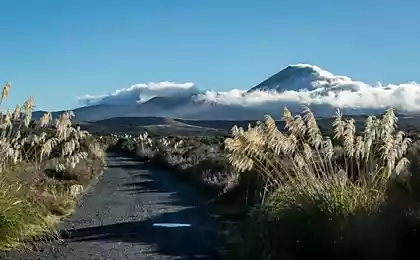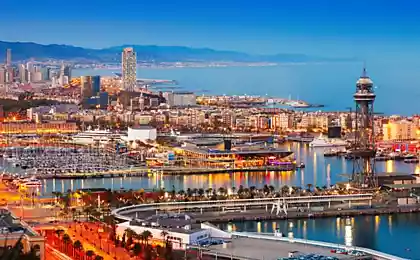474
Legal rights of nature
The third largest river in New Zealand, though not being able to contact a lawyer or to pay for a lawyer, has received legal standing in a court of General jurisdiction.
The Whanganui river will be considered a person whose case is considered in court (in fact, a legal entity), under a preliminary agreement signed between the group of native inhabitants of the tribe of the Whanganui river and national government. The agreement provides that the river is given legal status under the name of The Ava, Topoi, and two Trustees – one representative of the Crown and the second of native – will have the role of defenders of water, reported in the daily new Zealand Herald.

Giving the river the legal right – it is only a step to the solution of longstanding disputes between indigenous peoples and the government. This measure was taken a few years ago in Ecuador, when ecosystems were given legal rights.
"Environmentalists annoyed that the nature of the damage equates to damage to the user," explains Andrew Levin, a partner at the law firm of Stradley Ronon".
For example, harm to the river is determined by the losses for the trout fishermen or anglers serving firms. Damage to forests is determined by the losses for hunters or loggers.

"How to Express the cost of the damage? Transparency of water? Species diversity? says Levin. – The disadvantage of this approach is that it is unclear where is the border."
The intention to provide ecosystem legal status implies the expansion of the list of definitions for cost estimating. Levin notes that in 1972, U.S. Supreme court justice William Douglas argued for the empowerment of the trees standing.
"Inanimate objects sometimes are a party to the proceedings," wrote Douglas in the dissenting opinion of the judge in the course of the proceedings the club against Morton." – The ship's got a personality, and this invention was very useful in matters related to sea. Legal entity – a creature of ecclesiastical law – is acceptable in court. The usual legal entity is a "person" for the purposes of litigation, and it can be proprietary, spiritual, aesthetic, or charitable Affairs.

Thus, it should be used for valleys, Alpine meadows, rivers, lakes, beaches, mountain ridges, groves, swamps or even air to Express the destructive effects of modern technology and modern life. For example, the river is the embodiment of life that it supports or feeds, namely fish, aquatic insects, dippers, otters, pecans, deer, moose, and humans that depend on it or enjoy its landscapes, sounds, or very existence. As plaintiff, the river expresses the opinion of environmental unit of life, which is a part of it. Those people who have an attitude towards a particular reservoir, whether fishermen, canoeists, zoologists or loggers should be able to defend those values, what is the river that are under threat from destruction... Because it is impossible to silence a voice for inanimate objects".
According to Levin, there are some difficulties with the practical application of the arguments of Douglas. A legal person may Express intentions and desires, which are recorded in the minutes of meetings and other documents. It is, so to speak, can speak on their behalf.
"Who will speak for the trees? asks Levin. In real terms their defense will try to Express 20".

Source: /users/104
The Whanganui river will be considered a person whose case is considered in court (in fact, a legal entity), under a preliminary agreement signed between the group of native inhabitants of the tribe of the Whanganui river and national government. The agreement provides that the river is given legal status under the name of The Ava, Topoi, and two Trustees – one representative of the Crown and the second of native – will have the role of defenders of water, reported in the daily new Zealand Herald.

Giving the river the legal right – it is only a step to the solution of longstanding disputes between indigenous peoples and the government. This measure was taken a few years ago in Ecuador, when ecosystems were given legal rights.
"Environmentalists annoyed that the nature of the damage equates to damage to the user," explains Andrew Levin, a partner at the law firm of Stradley Ronon".
For example, harm to the river is determined by the losses for the trout fishermen or anglers serving firms. Damage to forests is determined by the losses for hunters or loggers.

"How to Express the cost of the damage? Transparency of water? Species diversity? says Levin. – The disadvantage of this approach is that it is unclear where is the border."
The intention to provide ecosystem legal status implies the expansion of the list of definitions for cost estimating. Levin notes that in 1972, U.S. Supreme court justice William Douglas argued for the empowerment of the trees standing.
"Inanimate objects sometimes are a party to the proceedings," wrote Douglas in the dissenting opinion of the judge in the course of the proceedings the club against Morton." – The ship's got a personality, and this invention was very useful in matters related to sea. Legal entity – a creature of ecclesiastical law – is acceptable in court. The usual legal entity is a "person" for the purposes of litigation, and it can be proprietary, spiritual, aesthetic, or charitable Affairs.

Thus, it should be used for valleys, Alpine meadows, rivers, lakes, beaches, mountain ridges, groves, swamps or even air to Express the destructive effects of modern technology and modern life. For example, the river is the embodiment of life that it supports or feeds, namely fish, aquatic insects, dippers, otters, pecans, deer, moose, and humans that depend on it or enjoy its landscapes, sounds, or very existence. As plaintiff, the river expresses the opinion of environmental unit of life, which is a part of it. Those people who have an attitude towards a particular reservoir, whether fishermen, canoeists, zoologists or loggers should be able to defend those values, what is the river that are under threat from destruction... Because it is impossible to silence a voice for inanimate objects".
According to Levin, there are some difficulties with the practical application of the arguments of Douglas. A legal person may Express intentions and desires, which are recorded in the minutes of meetings and other documents. It is, so to speak, can speak on their behalf.
"Who will speak for the trees? asks Levin. In real terms their defense will try to Express 20".

Source: /users/104























